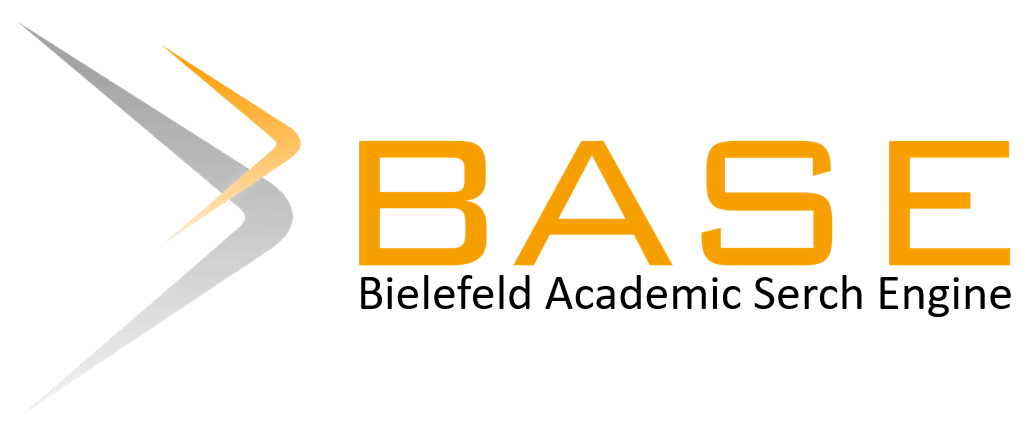HUBUNGAN MOTIVASI BELAJAR TERHADAP PRESTASI AKADEMIK PADA MAHASISWA YANG MENJALANI PEMBELAJARAN DARING SELAMA PANDEMI COVID-19
Abstract
Education is currently experiencing challenges as a result of the Covid-19 pandemic, so the government has issued a study from home policy using online methods to reduce the spread of the virus. During the pandemic there was a change in the learning environment and this required adaptation and had an impact on students. The learning environment has an influence on learning motivation and ultimately will affect academic achievement. This study aims to look at the relationship between learning motivation and academic achievement in students who undergo online learning during the Covid-19 pandemic. This type of research is quantitative using a cross sectional design and the sample used in this study amounted to 85 people, and simple random sampling was used as a sampling technique for the population. Collecting research data using a questionnaire distributed via google form to facilitate access during a pandemic, and data analysis used using the Spearman test. From the results of the correlation test, it was found that there was no significant relationship between learning motivation and academic achievement in students who underwent online learning during the Covid-19 pandemic, p = 0.288. Academic achievement cannot be influenced by motivation alone, but from several supporting factors behind it. Efforts should be made to improve the quality of learning during the Covid-19 pandemic.
Abstrak
Pendidikan saat ini tengah mengalami tantangan sebagai dampak pandemi Covid-19, sehingga pemerintah mengeluarkan kebijakan belajar dari rumah dengan menggunakan metode daring untuk menekan laju penyebaran virus. Pada masa pandemi terjadi perubahan lingkungan belajar dan hal ini membutuhkan adaptasi serta menimbulkan dampak bagi mahasiswa. Lingkungan belajar memiliki pengaruh terhadap motivasi belajar dan akhirnya akan mempengaruhi terhadap prestasi akademik. Penelitian ini bertujuan untuk melihat hubungan motivasi belajar terhadap prestasi akademik pada mahasiswa yang menjalani pembelajaran daring selama pandemi covid-19. Jenis penelitan ini kuantitatif dengan menggunakan cross sectional design dan sampel yang dipakai dalam penelitian ini berjumlah 85 orang, serta simple random sampling dipakai sebagai teknik pengambilan sampel pada populasi. Pengumpulan data penelitian menggunakan kuesioner yang dibagikan melalui google form untuk mempermudah akses selama pandemi, serta analisa data yang digunakan memakai uji Spearman. Dari hasil uji korelasi didapatkan bahwa tidak ada hubungan yang signifikan antara motivasi belajar terhadap prestasi akademik pada mahasiswa yang menjalani pembelajaran daring selama pandemi covid-19, p=0.288. Prestasi akademik tidak dapat dipengaruhi oleh motivasi saja, melainkan dari beberapa faktor pendukung yang melatar belakanginya. Perlu dilakukan upaya terhadap peningkatan kualitas pembelajaran selama pandemi Covid-19.
References
Almeida, F., & Simoes, J. (2019). The role of serious games, gamification and industry 4.0 tools in the education 4.0 paradigm. Contemporary Educational Technology, 10(2), 120-136. https://doi.org/10.30935/cet.554 469.
Anissa, W., Zaharah., Galia. (2020). Impact of corona virus outbreak towards teaching and learning activities in indonesia. Jurnal Sosial dan Budaya Syar’i, 07, no. 03 (t.t.): 269–82. https://doi.org/10.15408/sjsbs.v7i3.15104.
Aziz, H, A. (2018). Education 4.0 made simple: ideas for teaching. International Journal of Education and Literacy Studies, 6(3), 92-98. https://doi.org/10.7575/aiac.ijels.v.6n.3p.92.
Crews, J., & Parker, J. (2017). The cambodian experience: exploring university students’ perspectives for online learning. Issues in Educational Research, 27(4), 697–719.
Damanik, B. E. (2019). Pengaruh fasilitas dan lingkungan belajar terhadap motivasi belajar. Publikasi Pendidikan, 9(1), 46. https://doi.org/10.26858/publikan.v9i1.7739
Denker, K. J. (2013). Student response systems and facilitating the large lecture basic communication course: assessing engagement and learning. Communication Teacher, 27(1), 50–69. https://doi.org/10.1080/174046 22.2012.730622.
Emda, A. (2018). Kedudukan motivasi belajar siswa dalam pembelajaran. Lantanida Journal, 5(2), 172. https://doi.org/10.22373/lj.v5i2.2838
Fenti, H. (2010). Bimbingan konseling. Jakarta : Rajagrafindo.
Gamar, M. M., Al Faruq, M. S., & Lina, L. (2018). Challenging the Indonesian primary education in industrial revolution 4.0 era. 3rd International Conference on Education Management and Administration (CoEMA 2018), 269, 46–48. https://doi.org/10.2991/coema-18.2018.12.
Hasanah, U. (2015). Hubungan lingkungan sekolah dan motivasi belajar dengan hasil belajar IPS siswa kelas VIII di Mtsn Amuntai. Jurnal Socius, 4(2). https://doi.org/10.20527/jurnalsocius.v4i2.3314
Hasibuan, M. T. D. (2019). Hubungan stres belajar dengan motivasi belajar pada mahasiswa yang menjalani pendidikan di sekolah tinggi ilmu kesehatan murni teguh. Indonesian Trust Health Journal, 2(1), 128-131.
Husaini, M. (2014). Pemanfaatan teknologi informasi dalam bidang pendidikan (education). Jurnal Mikrotik, 2(1), 1–5.
Kemendikbud. (2020). Panduan pengenalan keghidupan kampus bagi mahasiswa baru (PKKMB) tahun 2020. Direktorat Jenderal Pendidikan Tinggi
Kemendikbud. (2020). Surat edaran mendikbud no 4 tahun 2020 tentang pelaksanaan kebijakan pendidikan dalam masa darurat penyebaran corona virus disease (COVID-19). Pusdiklat Pegawai Kementerian Pendidikan dan Kebudayaan.
Mather, M., & Sarkans, A. (2018). Student perceptions of online and face-to-face learning. International Journal of Curriculum and Instruction, 10(2), 61–76.
Mustofa, M. I., Chodzirin, M., Sayekti, L., & Fauzan, R. (2019). Formulasi model perkuliahan daring sebagai upaya menekan disparitas kualitas perguruan tinggi. Walisongo Journal of Information Technology, 1(2), 151. https://doi.org/10.21580/ wjit.2019.1.2.4067.
Orgaz, F., Moral, S., & Domínguez, C. (2018). Student’s attitude and perception with the use of technology in the university. Journal of Educational Psychology - Propositos Y Representaciones, 6(2), 277–299. https://doi.org/http://dx. doi.org/10.20511/pyr2018.v6n2.230.
Pilkington, O. A. (2018). Active learning for an online composition classroom : blogging as an enhancement of online curriculum. Journal of Educational Technology Systems, 47(2), 1–14. https://doi.org/10.1177/ 0047239518788278.
Riaz, A. (2018). Effects of online education on encoding and decoding process of students and teachers. International Conference E-Learning, 42–48. https://files.eric.ed.gov/fulltext/ED590288.pdf.
Riyani, Y. (2015). Faktor-faktor yang mempengaruhi prestasi belajar mahasiswa (studi pada mahasiswa Jurusan Akuntansi Politeknik Negeri Pontianak).
Sardiman, A.M. (2014). Interaksi dan motivasi belajar. Jakarta : PT Raja Grafindo Persada.
Traxler, J. (2018). Distance learning—predictions and possibilities. Education Sciences, 8(1), 1–13. https://doi.org/10.3390/educsci8010035.
Wlodkowski, R, J. (2004). Hasrat untuk belajar. Yogyakata : Pustaka Pelajar.


















